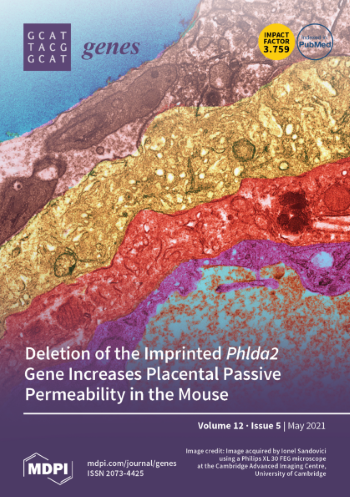Submitted by Noelia Corral Ferre on Tue, 01/06/2021 - 10:43
Image credit: Image acquired by Ionel Sandovici using a Philips XL30 FEG microscope at the Cambridge Advanced Imaging Centre, University of Cambridge
In a recent study, Miguel Constância’s group, in collaboration with colleagues from the Loke Centre for Trophoblast Research and University of Manchester, identified the imprinted and maternally expressed gene Phlda2 as a key new regulator of placental passive permeability. Passive diffusion drives maternal-fetal exchange across the placenta of all molecules and is a significant determinant of fetal growth. Passive permeability to hydrophilic molecules (e.g. ions, glucose, amino acids) is determined directly by the surface area for exchange and inversely by the thickness of the barrier, as well as the size of the molecule. This study was published in a special issue of Genes, entitled “Genomic Imprinting and the Regulation of Growth and Metabolism” edited by Miguel Constância and colleagues.
Angiolini E, Sandovici I, Coan PM, Burton GJ, Sibley CP, Fowden AL, Constância M. Deletion of the Imprinted Phlda2 Gene Increases Placental Passive Permeability in the Mouse. Genes (Basel). 2021 Apr 25;12(5):639. doi: 10.3390/genes12050639. PMID: 33922969; PMCID: PMC8146920.
This research paper is also part of the Special Issue on Genomic Imprinting and the regulation of growth and metabolism .See details here


